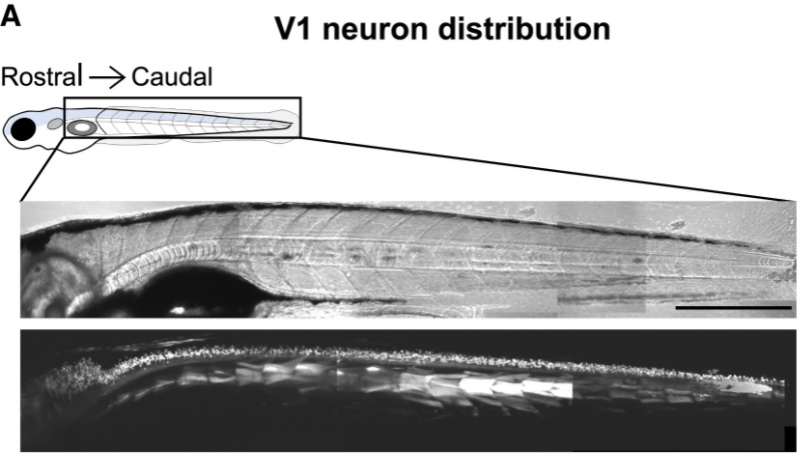
Mohini Sengupta, PhD, received third place in the 2021 Mightex Research Excellence Awards, which honor the work of trainees conducting outstanding science using Mightex products. Sengupta, who is a postdoctoral fellow in the lab of Martha Bagnall, PhD, assistant professor of neuroscience, studies the connectivity among spinal neurons in zebrafish.
“Mohini’s research is exciting because it addresses a question that the entire field of motor control hasn’t been able to address—whether connections along the length of the spinal cord are consistent,” says Bagnall. In a study published in Current Biology in 2021, Sengupta generated an answer to this question: these connections are not consistent. At short ranges, long, inhibitory neurons of the spinal cord, called V1 neurons, connect to motor-related circuits, but at long ranges, the cells interface with sensory circuits.
“This result was unexpected and helped us build a more accurate picture of how the spinal cord works,” Bagnall says. “Additionally, the technique she used here should be applicable to many other classes of spinal neurons in the future, so we can decode spinal motor circuits.”
To conduct these studies, Sengupta uses the Mightex Polygon DMD Pattern Illuminator to optogenetically activate V1 neurons in the spinal cord. “We have used this to map connectivity of spinal interneurons in the longitudinal axis of the spinal cord that has never been explored before but is extremely relevant for locomotion,” says Sengupta. Her resulting model of V1 neurons’ inhibition of the local motor and premotor neurons indicates the importance of this activity in coordinating the fish’s locomotor wave.

M. Sengupta et al., Current Biology, 31(17): R1035-R1037, 2021
Bagnall says Sengupta is a “thoughtful, creative, and highly rigorous scientist.” She was selected as an HHMI Leading Edge Symposium Fellow in 2021 and has been a leader at Washington University School of Medicine, having served as President of the WashU Postdoc Society from 2020 to 2021.